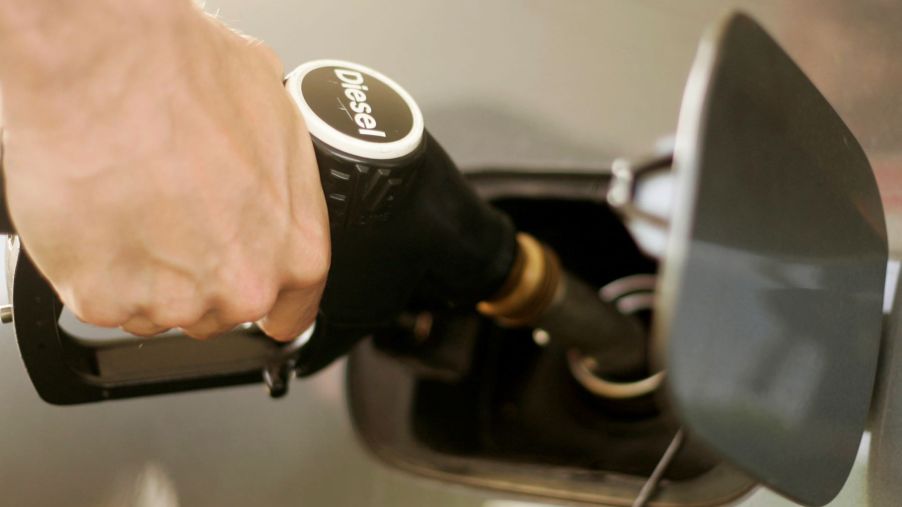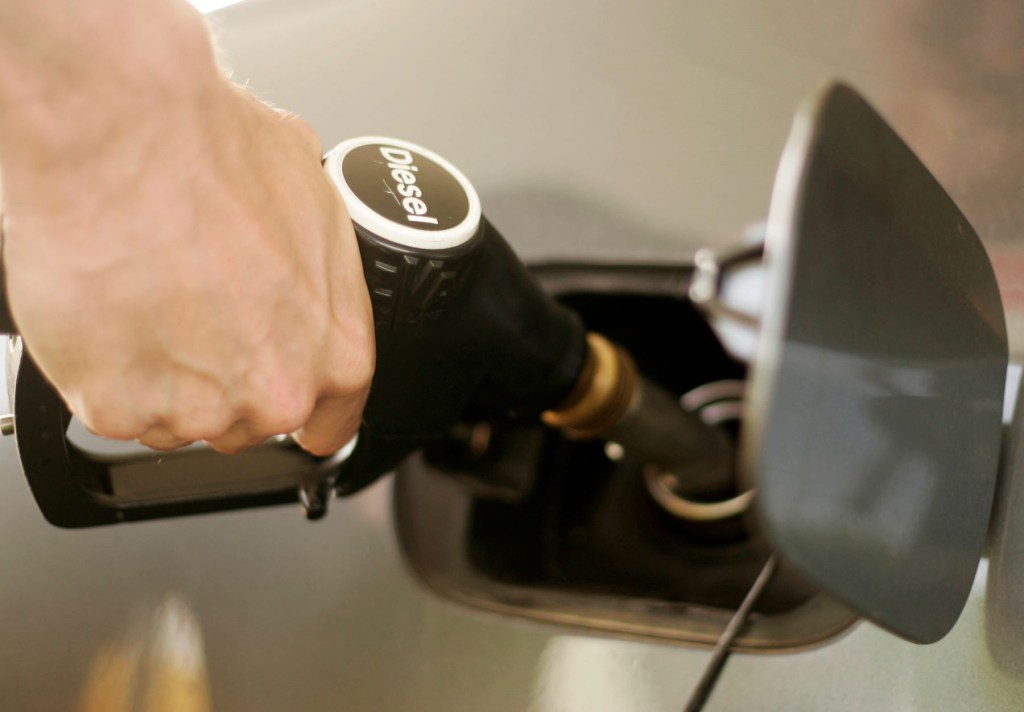
Is Cow or Bat Urine Really in Your Diesel Exhaust Fluid?
In 2010, the Environmental Protection Agency (EPA) of the United States mandated that all new vehicles powered by diesel engines be equipped with selective catalytic reduction (SCR). The SCR process uses diesel exhaust fluid, also known simply as DEF, to remove pollutants from diesel engine exhaust. Rumors that DEF contains urine, supposedly collected from cows or bats, have circulated for years. We at MotorBiscuit set the record straight in 2019. However, a recent article concerning diesel emulsifiers in Science Direct will likely lead to a resurgence of the rumor linking animal urine and diesel engines.
Why would anyone think that DEF contains animal urine?

The rumors that DEF contains animal urine are likely tied to the fact that DEF contains a chemical called urea. Urea is indeed a naturally occurring compound passed in the urine of many animals. So, it only stands to reason that urine could be present in DEF sold commercially, right? However, it is important to remember that urea is an essential component of DEF, and DEF is critical to the SCR process.
Does DEF contain urine?
The short answer is no. Commercially available DEF does not contain any animal urine. At least not at the time of this report. Diesel exhaust fluid sold in stores and at semi-truck pumps at truck stops in the U.S. does not contain urea derived from cows, bats, or any other animal’s urine, and to be clear, diesel owners should under no circumstances urinate in their DEF tanks. However, diesel exhaust fluid does contain a highly refined agricultural grade synthetic urea, the type that is commonly used in fertilizers. Fertilizers are used to grow corn that is used to produce another fuel-related controversy that shall remain unnamed.
While it is true that DEF is an extra fluid that must be purchased and yet another fluid that must be monitored and maintained, the upside is that it makes your diesel engine more efficient. According to Specialty Fuel Services, DEF may improve fuel efficiency up to 5 percent and is typically consumed at a rate of 2-4 percent of fuel. It isn’t often that doing something good for the environment almost pays for itself.
However, in the struggle to curb pollution, states like California are taking a hard stance against diesel engines and the emissions present in diesel engine exhaust. In fact, a California mandate forbids the sale of any new vehicle capable of producing exhaust emissions in the state by 2024. So settle in diesel fans; this could be a bumpy ride.
Why does my diesel engine need DEF?
Diesel exhaust fluid is used in the SCR process to reduce soot, carbon, nitrous oxides, and hydrocarbon emissions in diesel exhaust. Without SCR and DEF, modern diesel vehicles would have a larger carbon footprint than necessary, reducing air quality and contributing to pollution in general. In addition, without DEF, the SCR process would lead to overheating components and/or serious engine damage.
Diesel exhaust fluid is mostly deionized water, but a small amount of urea is present, often mistaken for urine. Urea is an important component of DEF. The process is detailed on CNET, but the short version is that after a diesel engine’s exhaust passes through a particulate filter to remove soot and ash, liquid DEF is sprayed into the exhaust stream. When the hot exhaust gas and urea mixture passes through the catalytic converter, a chemical reaction occurs between the nitrogen monoxide and nitrogen dioxide found in diesel exhaust, urea, and the metallic compounds within the catalytic converter. This chemical reaction reduces the exhaust to pure nitrogen and water, both of which are naturally occurring compounds that, so far, pose no threat to the environment.



